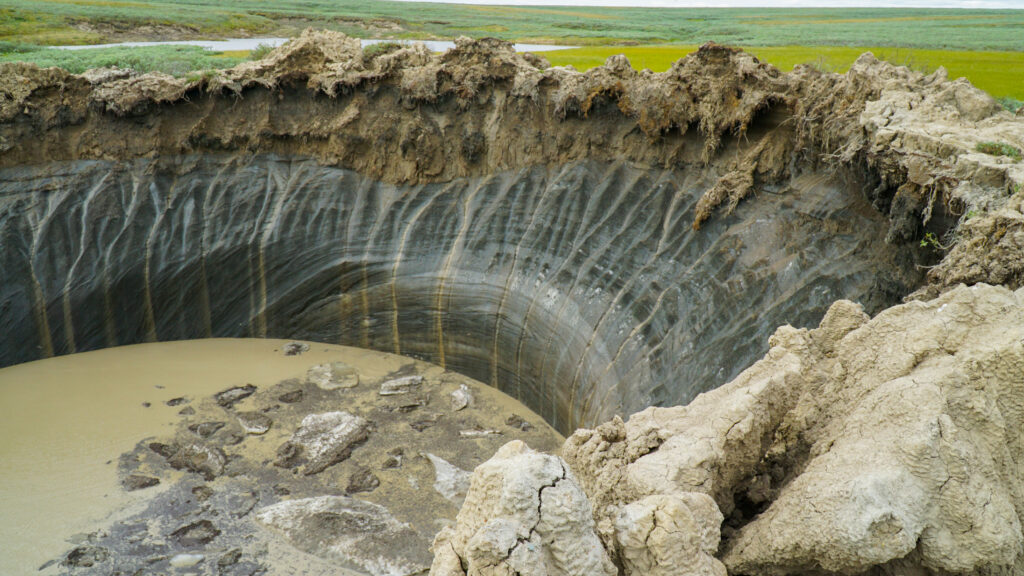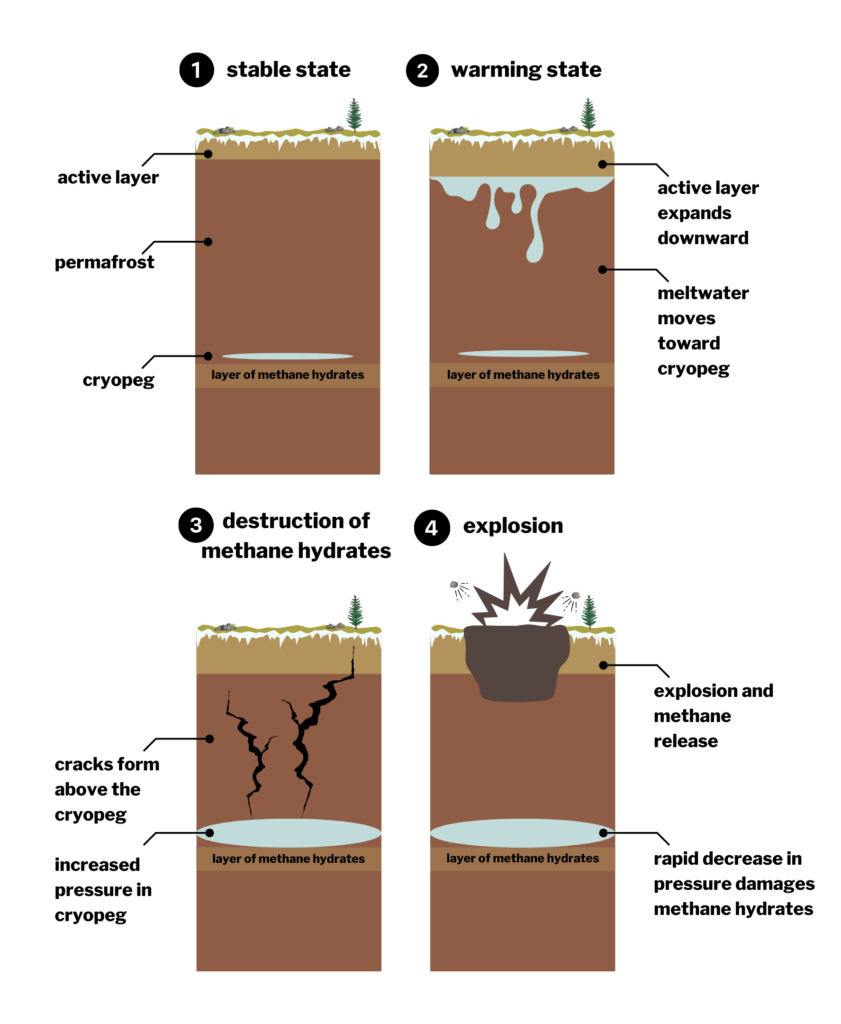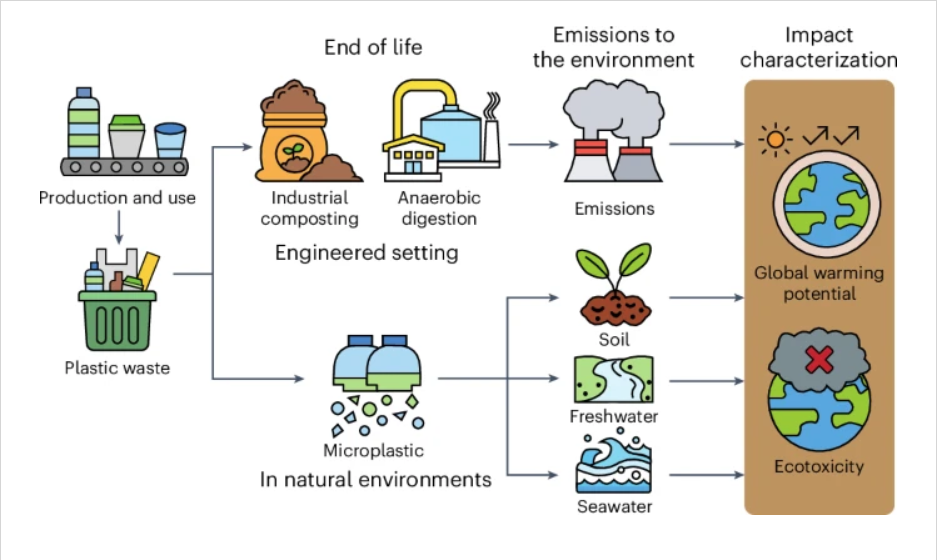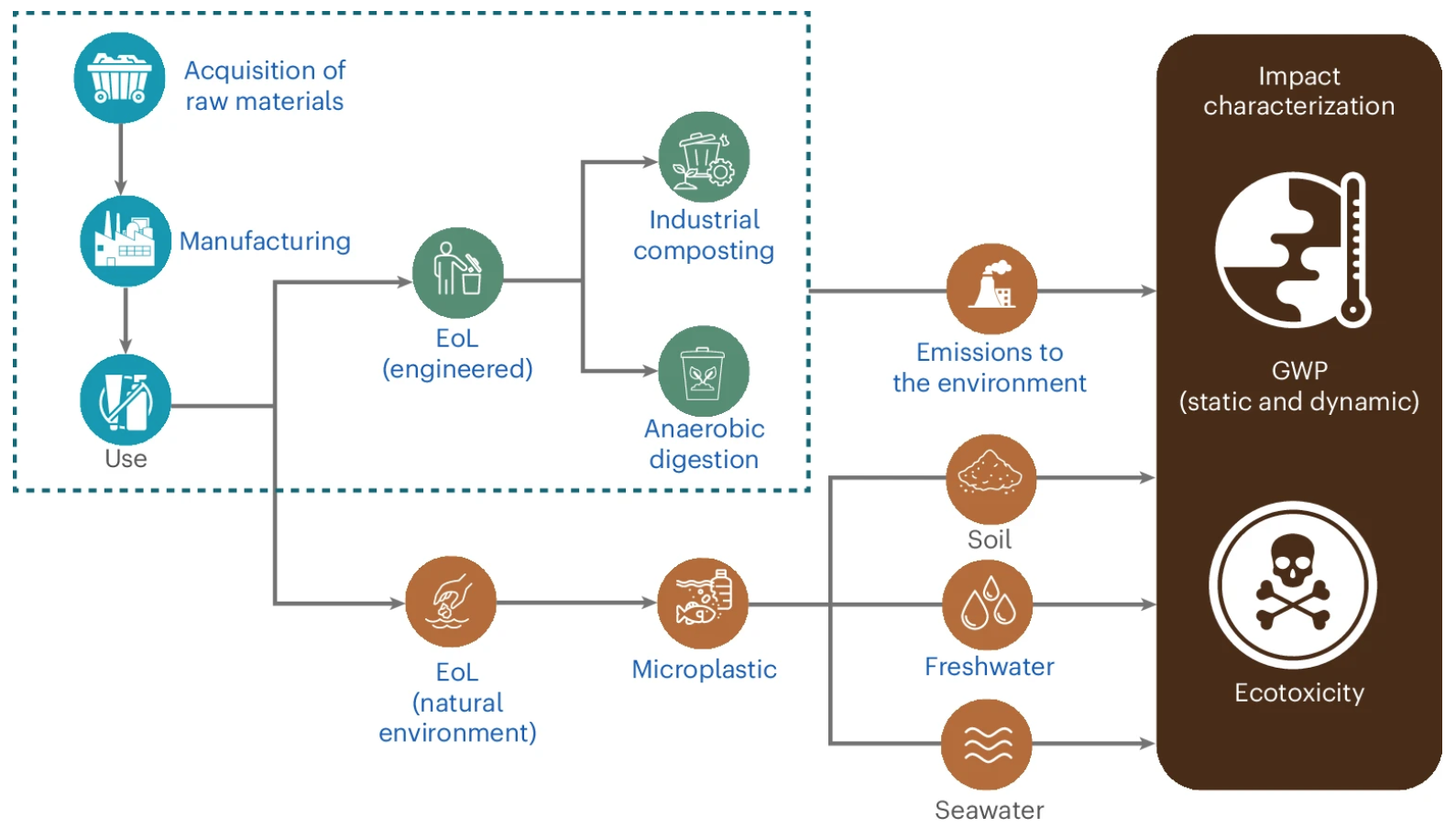
Large craters in the tundra on Russia’s Yamal Peninsula are formed by a combination of warming and osmosis, according to new research in Geophysical Research Letters. Credit: Adobe Stock/Alexander Lutsenko
How Thawing Permafrost and Methane Release Are Creating Explosive Craters—and What It Means for Our Planet
Did you know that giant craters have mysteriously appeared in Siberia? Since 2014, researchers have discovered deep craters in the Yamal and Taymyr peninsulas, leaving scientists puzzled. What’s causing these formations? The answer lies in a surprising combination of natural processes involving melting permafrost and the release of methane gas—one of the most potent greenhouse gases linked to climate change.
What Is Permafrost?
Permafrost is ground that remains frozen for at least two consecutive years. It often holds ice and organic material like dead plants and animals. While it might seem unremarkable, permafrost plays a crucial role in storing methane, a gas produced when organic material breaks down without oxygen. Normally, permafrost traps this gas beneath the frozen ground, keeping it safely locked away. But what happens when the permafrost starts to thaw?
The Problem: Mysterious Craters
In 2014, the first massive crater was discovered in the Yamal Peninsula. This crater was so large and sudden that it alarmed local residents and scientists alike. As more craters appeared, scientists noticed that these holes emitted high levels of methane. It became clear that the formation of these craters was not just a random event but was linked to powerful forces beneath the ground.
The Science Behind the Explosions
Osmosis Explained
To understand what’s happening, we need to talk about osmosis. In simple terms, osmosis is the movement of water from an area of low concentration to an area of high concentration. Imagine putting a dry sponge in water; the water naturally flows into the sponge until it’s soaked. A similar process happens deep underground in Siberia.
The Cryopeg Factor
Beneath the surface of the permafrost lies a cryopeg, which is a layer of salty, unfrozen water. This salty layer creates an osmotic gradient—essentially a pressure difference that draws water downward. During warmer months, when surface ice melts, water trickles down into the cryopeg, slowly raising the pressure below the surface.
Pressure Build-Up
As more water flows into the cryopeg, pressure builds up. The frozen soil above acts like a lid, holding the pressure in. Eventually, when the pressure becomes too great, the soil cracks open. This cracking allows methane hydrates—methane trapped within ice structures—to rapidly decompress and turn into gas. The result? A sudden, powerful explosion that forms a crater.

Warming causes melting in the active layer, which expands deeper into the permafrost. Meltwater then enters the salty cryopeg through osmosis, causing the expansion of the cryopeg, which cracks the overlying permafrost. When those cracks reach the surface, the rapid decrease in pressure in the cryopeg damages the methane hydrates below and triggers a rapid physical explosion. Images not to scale. Credit: AGU/Madeline Reinsel
The Release of Methane
When the soil fractures, methane that was trapped in the hydrate layer is released. This isn’t just a minor problem. Methane is about 25 times more effective at trapping heat in the atmosphere than carbon dioxide, making it a significant contributor to global warming. The sudden release of methane from these explosions adds to the greenhouse gases already present in the atmosphere, accelerating climate change.
Why This Matters
Understanding why these explosions occur is crucial. The Arctic is warming at twice the rate of the rest of the planet. As temperatures rise, more permafrost thaws, creating conditions ripe for these explosive events. The more methane released into the atmosphere, the greater the impact on climate change. This process creates a feedback loop: warming causes permafrost to thaw, releasing methane, which in turn speeds up global warming.
Key Takeaways:
- Methane’s Impact: Methane contributes significantly to the greenhouse effect, making these explosive releases a serious environmental concern.
- Climate Change Feedback Loop: Thawing permafrost leads to methane release, which further accelerates warming and creates more opportunities for explosions.
What Scientists Are Doing
Scientists are racing to understand the full extent of this phenomenon. Ongoing research involves monitoring permafrost temperatures, tracking methane levels, and studying the structure of cryopegs. Some teams are even modeling future scenarios to predict where new craters might form. By understanding how and when these methane releases occur, experts hope to improve climate models and develop better strategies to address global warming.
Summing Up
The discovery of these craters in Siberia has shed light on an unexpected consequence of climate change. As permafrost thaws and pressure builds beneath the surface, methane releases and explosions can occur. Understanding these processes not only helps explain the mysterious craters but also highlights the urgent need for action. How can we, as individuals and communities, contribute to slowing down global warming and preventing further methane releases?
Understanding these complex natural processes gives us insight into the interconnectedness of our environment and the urgent measures needed to mitigate climate change.
Source: Morgado, A. M. O., Rocha, L. A. M., Cartwright, J. H. E., & Cardoso, S. S. S. (2024). Osmosis Drives Explosions and Methane Release in Siberian Permafrost. Geophysical Research Letters.


